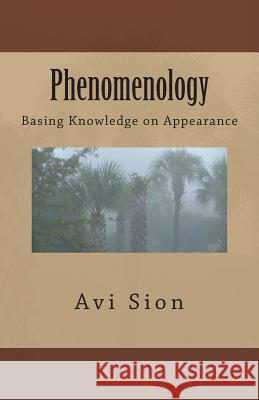Phenomenology: Basing Knowledge on Appearance » książka
Phenomenology: Basing Knowledge on Appearance
ISBN-13: 9781495917592 / Angielski / Miękka / 2014 / 436 str.
Phenomenology is the study of appearance as such. It is a branch of both Ontology and Epistemology, since appearing is being known. By an 'appearance' is meant any existent which impinges on consciousness, anything cognized, irrespective of any judgment as to whether it be 'real' or 'illusory.' The evaluation of a particular appearance as a reality or an illusion is a complex process, involving inductive and deductive logical principles and activities. Opinion has to earn the status of strict knowledge. Knowledge develops from appearances, which may be: (a) objects of perception, i.e. concrete phenomena in the physical or mental domains; (b) objects of intuition, i.e. one's subjective self, cognitions, volitions and valuations (non-phenomenal concretes); and/or (c) objects of conception, i.e. simple or complex abstracts of preceding appearances. Abstraction relies on apprehensions of sameness and difference between appearances (including received or projected appearances, and projected negations of appearances). Coherence in knowledge (perceptual, intuitive and conceptual) is maintained by apprehensions of compatibility or incompatibility. Words facilitate our construction of conceptual knowledge, thanks to their intentionality. The abstract concepts most words intend are common characters or behaviors of particulars (concrete material, mental or subjective experiences). Granting everything in the world is reducible to waves, 'universals' would be equalities or proportionalities in the measures of the features, motions and interrelations of particular waves. Such a theory of universals would elucidate sensation and memory. In attempting to retrace the development of conceptual knowledge from experience, we may refer to certain major organizing principles. It is also important to keep track of the order of things in such development, interrelating specific concepts and specific experiences. By proposing a precise sequence of events, we avoid certain logical fallacies and are challenged to try and answer certain crucial questions in more detail. Many more topics are discussed in the present collection of essays, including selfhood, adduction and other logical issues, the status of mathematical concepts and theology.
Zawartość książki może nie spełniać oczekiwań – reklamacje nie obejmują treści, która mogła nie być redakcyjnie ani merytorycznie opracowana.











